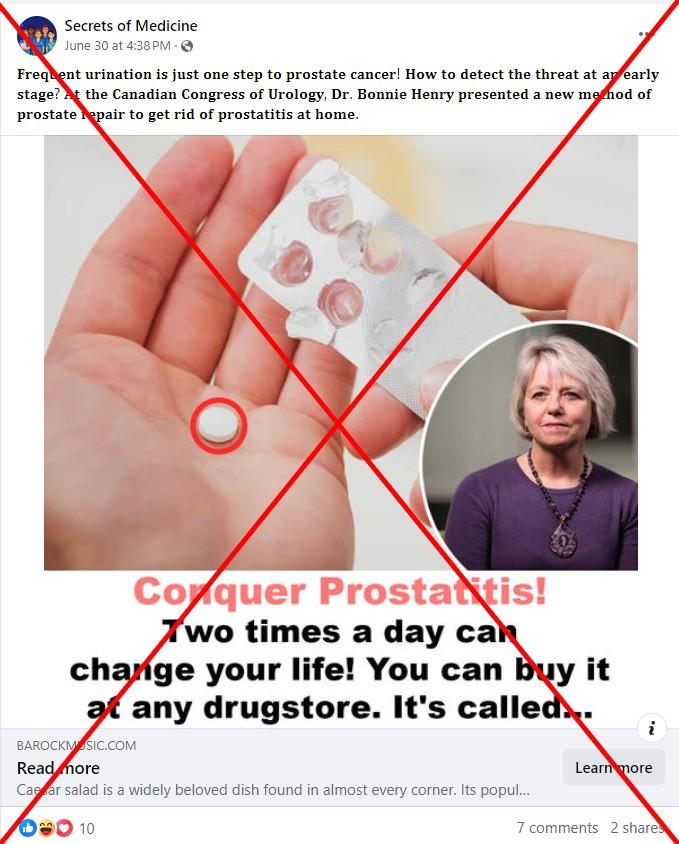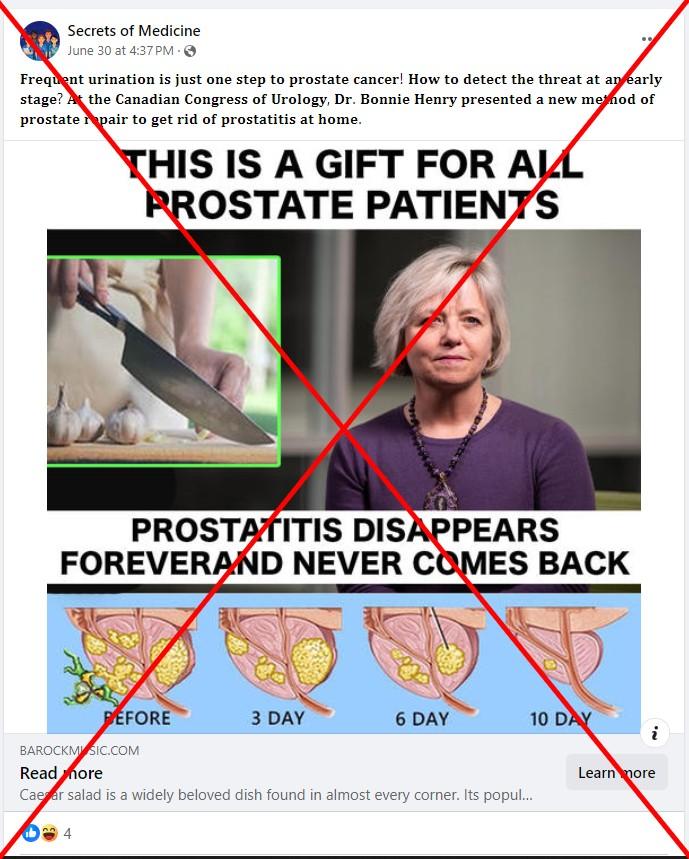
Prostate treatment ads target Canadians with bogus offers
- This article is more than one year old.
- Published on July 5, 2024 at 20:55
- 2 min read
- By AFP Canada
"At the Canadian Congress of Urology, Dr. Bonnie Henry presented a new method of prostate repair to get rid of prostatitis at home," the text of a June 30, 2024 Facebook post claims.
Several other posts featuring British Columbia Provincial Health Officer Henry -- a specialist in public health and preventive medicine (archived here) -- spread across Facebook, claiming to include links and information about how to treat various prostate issues, such as cancer and inflammation.


The ads promote purported health remedies, but the links attached to many of the posts lead to pages with various recipes for salads or Thai iced tea.
Some of the posts feature footage of Henry talking, but her words do not appear to line up with the movement of her lips. Reverse image searches of screenshots from the clip reveal the video is pulled from a November 2023 press conference discussing respiratory illness season, not prostate issues (archived here).
Andy Watson, a spokesman for the provincial health officer, told AFP in a July 3 email that the claims of promotion from Henry in the posts were not legitimate.
"These are not accurate and are false endorsements," he said.
According to the Canadian Cancer Society (CCS), prostatitis is a non-cancerous condition of the prostate characterized by swelling and inflammation (archive here). The CCS lists different treatments depending on the type of prostatitis, including antibiotics, alpha-blockers and muscle relaxants (archived here).
Similarly, the CCS site explains that to treat prostate cancer, a healthcare team will create a specialized treatment plan based on the type of condition a patient is diagnosed with (archived here). According to the charity, prostate cancer is the "most common cancer in Canadian men," and while the risk of developing the disease increases with age, tests exist to detect the cancer early (archived here and here).
AFP has previously debunked illegitimate Facebook ads targeting Canadians by appropriating the images of public figures.
Henry became the target of conspiracy theories and misinformation for her prominent role in British Columbia's response to the Covid-19 pandemic, sometimes leading to death threats.
Read more of AFP's reporting on misinformation in Canada here.
Copyright © AFP 2017-2026. Any commercial use of this content requires a subscription. Click here to find out more.
Is there content that you would like AFP to fact-check? Get in touch.
Contact us
